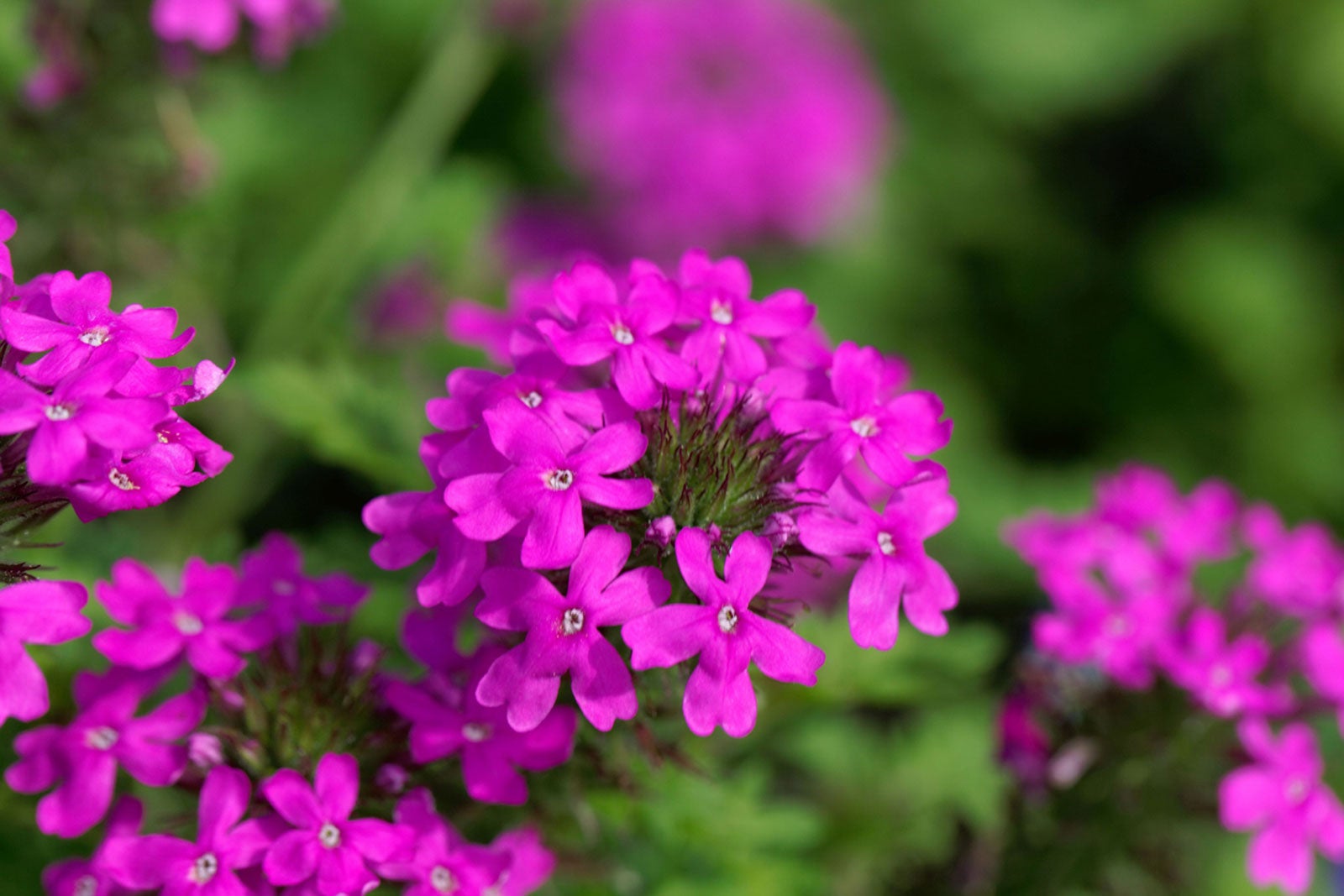Rose Verbena Care: How To Grow A Rose Verbena Plant


Rose verbena (Glandularia canadensis formerly Verbena canadensis) is a hardy plant that with very little effort on your part, produces aromatic, rosy pink or purple blooms from late spring to late summer. Interested in growing rose verbena in your garden this year? Read on to learn how.
Rose Verbena Plant Info
This North American native, also known as clump verbena, rose mock vervain, or rose vervain, is commonly found growing wild in fields, prairies, pastures, meadows, and wooded areas across the eastern United States, as far west as Colorado and Texas.
Rose verbena uses include adding to flower beds, rose gardens, borders, or hanging baskets. The sprawling nature and ability to root at the nodes make this plant a worthy groundcover. The sweet blooms attract bees, hummingbirds, and several types of butterflies.
The plant is perennial in USDA plant hardiness zones 5 through 9, but it is easily grown as an annual in cooler climates.
Rose Verbena Care
Rose mock vervain thrives in full sunlight and tolerates poor, well-drained soil, including dry or rocky conditions. The plant won’t tolerate shade, crowded conditions, poor air circulation, or soggy soil.
Keep the soil slightly moist until the roots are established. At that point, watering once a week is generally sufficient. Water at the base of the plant and try to keep the foliage as dry as possible.
Feed rose verbena plants in mid to late spring, using a light application of a balanced, general-purpose fertilizer.
Sign up for the Gardening Know How newsletter today and receive a free copy of our e-book "How to Grow Delicious Tomatoes".
Pinch the tips of newly planted rose verbena to stimulate fuller, bushier growth. Trim the entire plant back by about one-quarter of its height if blooming slows in midsummer, then water well and feed the plant once more. Blooming should resume in a couple of weeks.
A light trim will neaten up the plant in fall, but hold off any major pruning until spring. Severe pruning late in the season can make the plant more susceptible to damage during the winter.
Although these plants tend to be relatively pest resistant, keep an eye out for aphids, spider mites, thrips, and whiteflies. Insecticidal soap spray usually takes care of the pests, but reapplication may be necessary.
Rose verbena plants in zone 5 may need a layer of straw or mulch to protect them during the winter. The plants generally aren’t long lived, but they sometimes reseed themselves. If not, you may need to replace the plant after two or three years.
Growing Rose Verbena Plants in Containers
Rose verbena plants are well suited for growing in containers. Be sure to check the plant daily and water whenever the soil feels dry to the touch. The plants may need water daily during hot, dry weather.
Provide a water-soluble fertilizer monthly, or use a slow-release fertilizer early in the growing season.

A Credentialed Garden Writer, Mary H. Dyer was with Gardening Know How in the very beginning, publishing articles as early as 2007.